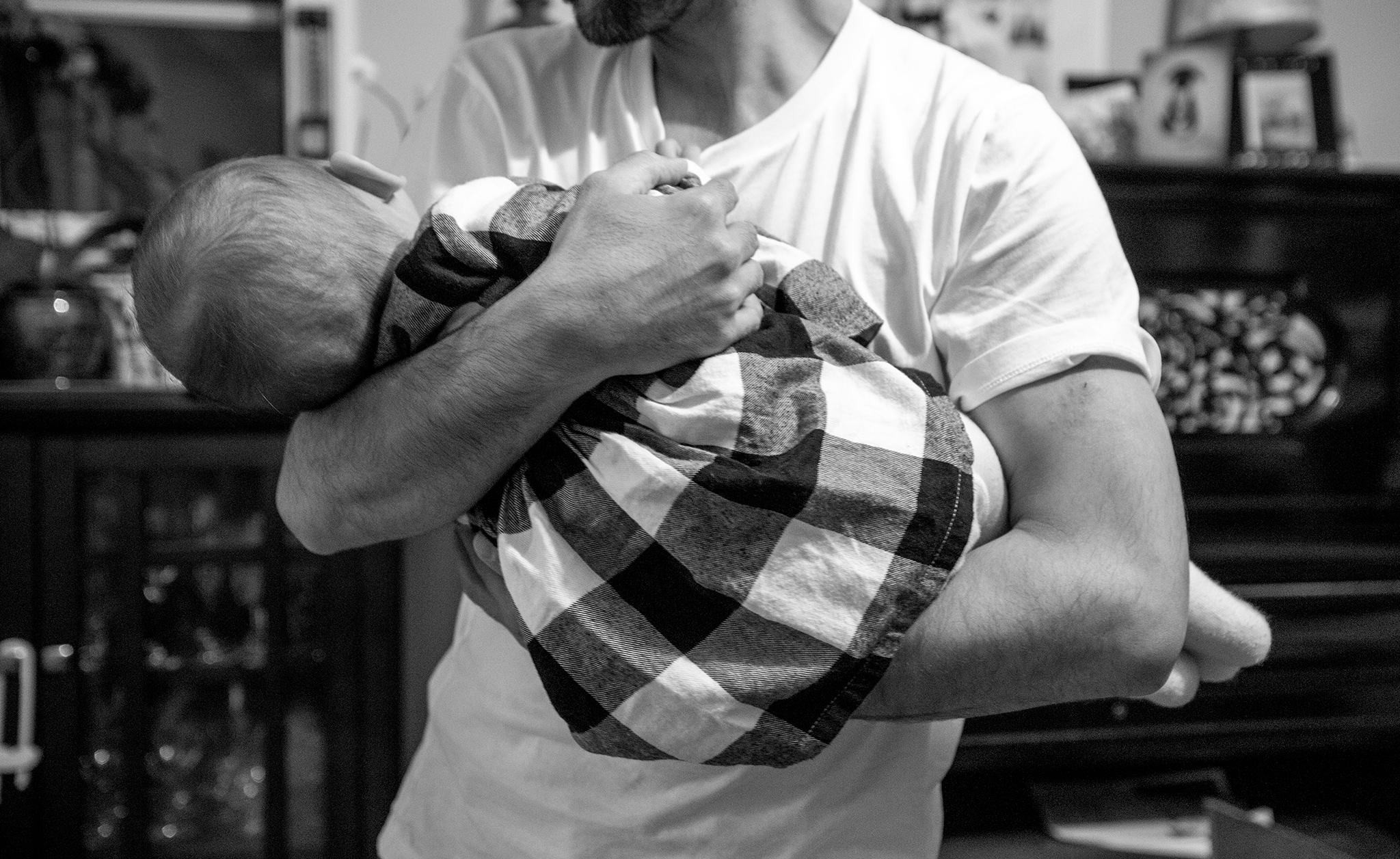Each morning, Gretchen Cheverton wakes up and checks her phone. That might seem pretty standard, except Cheverton usually isn't scanning for messages from friends or likes on her photos. Instead, the device transports her to another world, a place darker than her cozy Washington Park cottage, where hundreds of people beg her every day for help leaving Afghanistan.
"There's usually 100 friend requests, every day. Sometimes [200]-300," she said as she scrolled through the endless queue in her inbox. "Like, it won't load fast enough for me to scroll through them to see thousands and thousands of messages."
"Since the country has gone back to the hands of the Taliban, I'm seriously unsafe and they are searching for me, to find me and kill me, every day," one read. "I would be very much appreciated if you are to look into my situation."
"My life and my family are in danger. I and my family are in hiding. I need your help," said another.
"Please help me."
In August, as the Taliban took over Kabul, tens of thousands of Afghans rushed to the airport in hopes of evacuation. The scene on the ground was chaos. People authorized to leave struggled to get close enough to show their documents while others without paperwork slipped onto planes and left the country. Tens of thousands of Afghans eligible for Special Immigrant Visas (SIV) - who worked with U.S. and NATO forces and are permitted to escape to the United States - were unable to leave Kabul before American troops pulled out completely in late August. Desperate, and fearing they'd be hunted by the Taliban, they began turning to social media for help.

Even before the Taliban arrived in Kabul, Cheverton's brother, Sam Blackmer, began work to connect SIV holders with his friends in the U.S. State Department. He served with the U.S. Army in Kabul and could pull strings to get names on evacuation lists. In October, Cheverton said someone posted both his name and hers to a message board, listed as resources who could help people leave the country. That's when the messages started piling into her Facebook inbox. It opened a window that allowed the ongoing crisis to spill into Denver, changing her world forever.
"It's like if everyone in Auschwitz had a cell phone and your phone number and they're pleading with you and there's just nothing you can do."
Though Cheverton cannot help the vast majority of people sending pleas through this portal, she said it's worth spending her days with one eye looking back through it.
"That's the hardest part, to say over and over and over, 'I can't help you,'" she said, still peering into the phone. But "the family that's staying with us are here because we were doing this. That's how they got out. So, I mean, there's four people whose lives were completely changed because I sort through endless messages."
Listen to the version of this story that aired on NPR's All Things Considered:
In December, a family flew into Denver in the middle of the night to come to live with Cheverton. They are some of the lucky and very few who have made it to safety.
M. waited outside the Kabul airport with his wife and two small children for days before the U.S. left Afghanistan, hoping to penetrate the massive crowds and use his SIV documentation to board a plane. He worried he'd lose his family in the chaos, so they left, heading not to the home they abandoned but to one of a dozen places around the city where they stayed to evade the Taliban.
He requested we not reveal his name or face, fearing the Taliban might go after family members who cannot yet leave the country. He said he saw the bodies of people who worked with western forces, like him, hung in public squares.

As M. and his children cycled through homes of friends and family around the city, he began appealing to anyone who would listen to his story. He eventually found Blackmer, and sent messages not unlike those that pour into Cheverton's inbox every day.
"I repeatedly messaged to Sam to please help us," M. remembered. "Please help me to get out of Afghanistan, to put my family to the evacuation list."
He got through. Blackmer passed M.'s name into his network and managed to get the family listed for departure. The family of four boarded a plane to Qatar in October, then flew to New Jersey, where they lived in a tent at Joint Base McGuire-Dix-Lakehurst.
M. said he was placed near the end of a line of about 16,000 people waiting to move off the base. Many had friends or family members in the U.S. and were allowed to take "independent departure" to leave the military installation. Everyone else had to wait to be placed in a resettlement program, a process slowed by a national housing shortage that has made it difficult to move these people to more permanent situations. Christopher Purdy, a director with Human Rights First, told Denverite about 7,000 people are still waiting to leave bases in five states.

M. had no close contacts in the U.S., but his infant daughter was getting sick in the tent city and his wife was beginning to lose hope. He reached out to Blackmer again for help.
That's when Blackmer connected M. with Cheverton. Would she consider taking the family in so they could leave the base and begin their new life?
"I immediately sent them my address and said, 'Ask please to come to Colorado, and you can come stay with us until your home is ready,'" she remembered as she drove through the dark to pick them up at Denver International Airport. "I don't think there was ever a moment that I didn't really think we were going to do it."
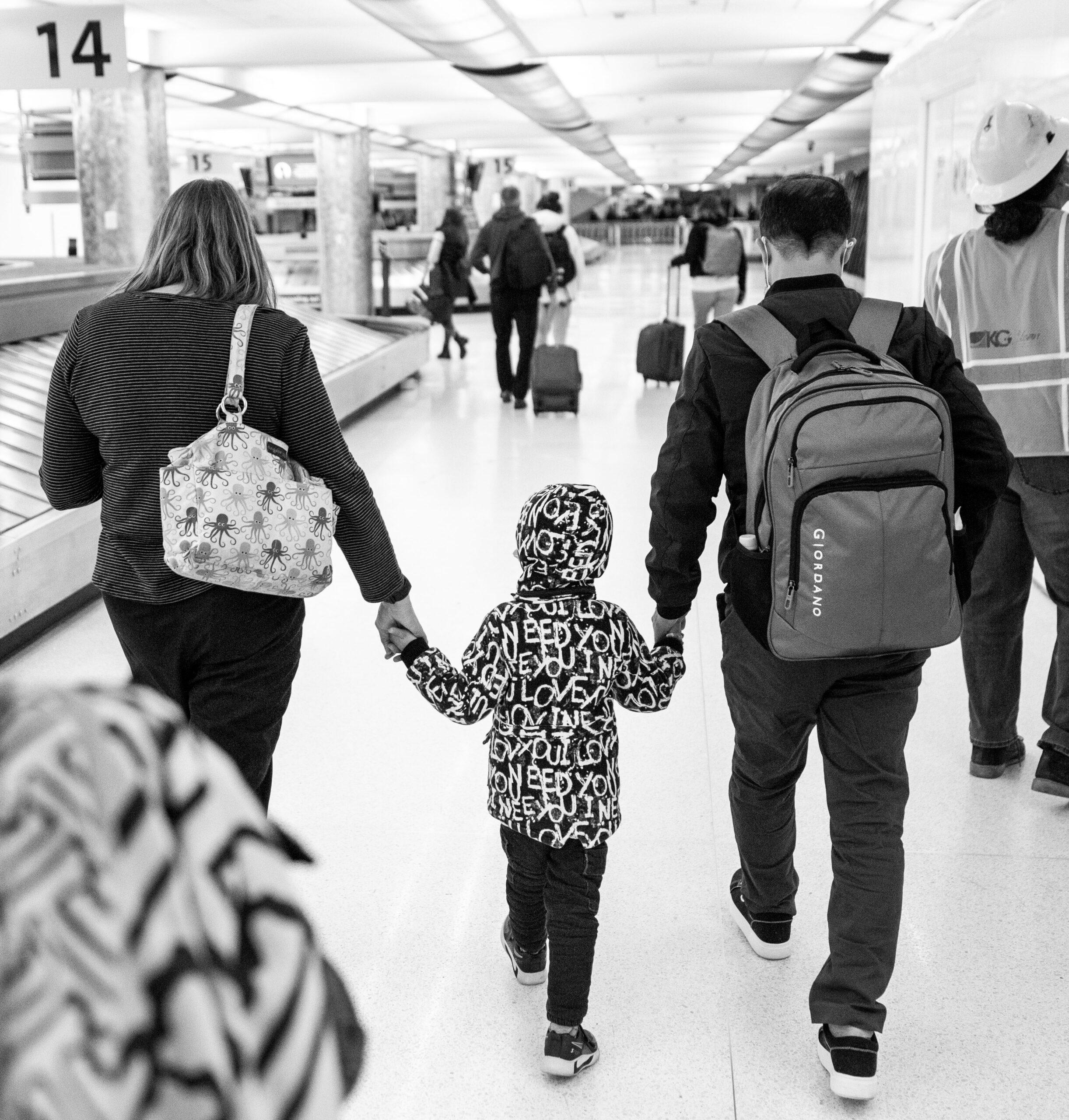
Still, she began to worry as the moment of their meeting drew closer.
"Our house is kind of small, and I think we might kind of trip over each other a little bit. And I guess also I'm not a great housekeeper," she said as she approached the parking lot. "I was kind of worried they might actually be upset that they were stuck with us."
Her fears melted away as M. and his family finally emerged from the terminal. Tired, but cheery, M. introduced himself and his family to their new hosts.
"How are you? I'm so happy to meet you!," Cheverton chirped as they shook hands. "Are you ready to go home?"
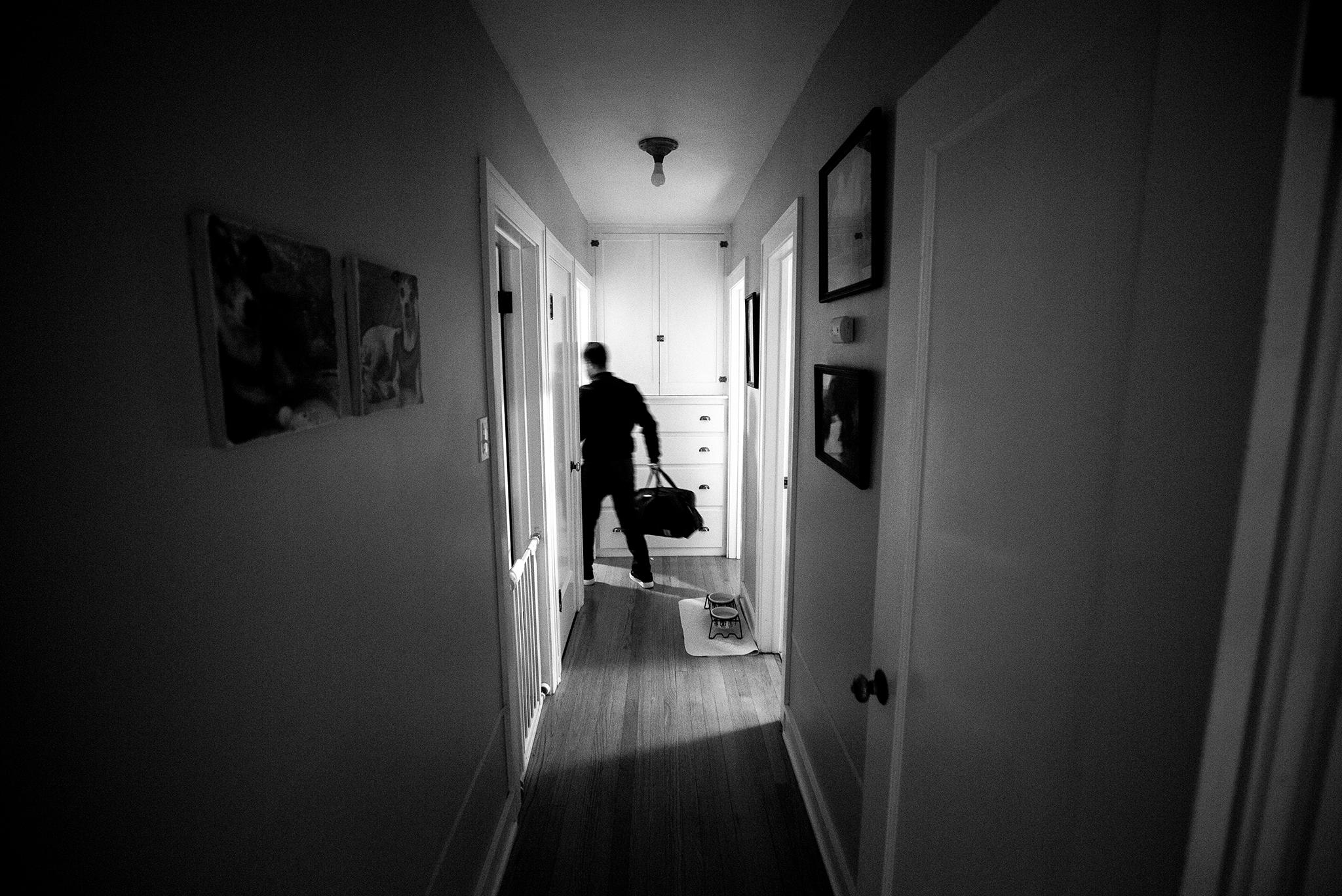
While M.'s family had finally arrived in a stable place, their experience was not the norm.
"The story of this family is miraculous in a lot of ways, but the biggest is really they're the outlier at this point," Rep. Jason Crow, a veteran who's followed the U.S. withdrawal closely, told us later. "We do know the number of eligible Afghans is in the tens of thousands, and a very, very small number of those have been able to leave."
The evacuation process ground to a halt when western forces left Afghanistan.
Technically, only Afghans with SIV status are allowed to come to the U.S., but it's a lengthy process that, for now, is not available to anyone who doesn't already have finished paperwork.
To obtain the correct documents, people who worked with western forces must go through an in-person interview with American officials. Since the U.S. embassy closed in Kabul at the end of August, Crow said, no one with eligibility has been able to move their cases forward.
"Obviously, we don't have any capability to do that anymore, so there remains a challenge of how are we going to process people remotely," he told us.
Crow said the U.S. government is working with Qatar to begin conducting interviews by proxy at their embassy in Kabul. In the meantime, he said the Taliban has closed land routes out of the country for many. Like Cheverton, he's been fielding a lot of messages from people hoping he can help.
"I get a lot of notes, a lot of requests, all the time, from people who are desperate and who are stuck," he told us. "It's heartbreaking and certainly not where we wanted to be, and we continue to push hard to expedite as many evacuations as we can."

Many people who qualify to leave the country, like M., burned their documents when the Taliban arrived, making it even harder to get their cases in order.
"There was an announcement from the Taliban that they were saying, 'We will know who had done jobs with the U.S. We can recognize them from their friends, relatives,'" M. said over tea one afternoon in Cheverton's home. "Due to that, I burned every document that I had."
Others may apply for a Priority 2 (P2) visa if they worked with the U.S. government but don't qualify for SIV. This process requires a letter of support from a supervisor who can vouch for the applicant. Cheverton said she's gotten messages from people asking for help with this, too. One person told her he'd been trying to reach his supervisor in Colorado Springs, who he'd been writing endlessly for a letter of recommendation. She found the supervisor's address and drove an hour south to knock on his door. The man's wife answered, she said, and quickly turned her away.
"This person says he's an interpreter?," the woman said to Cheverton before closing the door. "That's what they all say."

While many may be able to begin applying for U.S. entry once our government figures out how to restart interviews, there are many more people trying to escape Afghanistan who will never qualify for SIVs or P2s.
Cheverton said she regularly receives messages from activists, students, journalists and members of the fallen Afghan army, among others, who saw her name online and hope she can do something about their situations.
"Let me tell you my story. I'm a U.S. citizen who wants to help my family evacuate Afghanistan. By family, I mean parents and three sisters. I contacted the [Department of State] and they asked me to leave my sisters behind and depart with my parents, but I'm not doing that. If I leave my sisters, there is no way for them to survive a week," the person wrote. "I won't leave them alone, no matter what. Now, if you can, please save our lives."
Like she's said to so many others, Cheverton could only tell the sender there was nothing she could do.
There are a lot of administrative issues facing people who did make it to the United States, too.
Though the U.S. has limited most immigration from Afghanistan to people with special visas, thousands of people without documents made it to the U.S. last year.
As he tried to push through the crowds at the Kabul airport in July, M. said he watched as people without SIVs made it past guards at the gates. Many, he said, had friends working at the airport who got them inside.
Purdy, with Human Rights First, estimated about 86,000 people without SIVs arrived in the U.S. last year. Now all of them, with nowhere else to go, must apply for asylum to avoid becoming undocumented in this country.
April Palma Roberts, director of immigration legal services with Catholic Charities of Denver, said about 600 people in this situation are expected to arrive in Colorado.
"We've never seen that kind of volume," she told us.
Applying for asylum is a long and complicated process, and Roberts said advocates are bracing for a ton of work as more people land in the state. Catholic Charities is part of a coalition of local nonprofits that's working with state officials to raise money for the impending legal costs.
"Folks applying for asylum are going to have success, but it's getting them all filed, of course, that is the real challenge," she said. "I do fear that there are going to be a lot of Afghans that do fall into undocumented status because they missed their one-year filing deadline."

Housing is another major issue, and resettlement agencies are feeling it as they try to place people in tight markets like the Denver metro.
Linda Foster, president and CEO of Jewish Family Service in Denver, said organizations in the Front Range are now also dealing with a huge, new demand generated by the historic wildfires in Boulder County in late December.
"Now what do you do? Because you've got the people in Boulder who need housing and we were planning to hopefully grab some space," she said "Now, of course, it's going to be more competitive."
Jewish Family Service has relationships with landlords in 24 apartment buildings in the metro that represent over 100 units available to their clients, which include Afghans and also people living in homelessness. When we spoke in early January, Foster said there were only four units available for everyone in need.
The shortage means Afghan families will have to manage without permanent homes for longer than anyone had hoped. Congressman Crow said many coming to Colorado are landing in temporary housing set up by the state in an undisclosed location. Even when the federal government can say they've moved everyone off of military bases, many may not actually be "resettled."
Despite so many challenges, M. and his family have begun to plant roots in Denver.
M. remembers how Afghanistan changed after U.S. forces pushed out the Taliban following 9/11. Life was dangerous before, he said. He began to dream about his future after the country stabilized.
"During these years, I was really happy. I was always thinking I could make a better life for my family," he said. "I hoped that we could make Afghanistan better."
But he began to see the writing on the wall as President Trump's administration began negotiating with the Taliban. He left his job as a teacher and went to work for NATO, hoping it would provide a way out.
While his plan eventually worked out, M. said it crushed him to leave his siblings and his country behind.
"I lost many things there. I lost my hope, I lost my fortune, I lost everything. I was thinking that maybe I would lose my family as well, but fortunately I came here," he told us as he sipped a cup of tea.
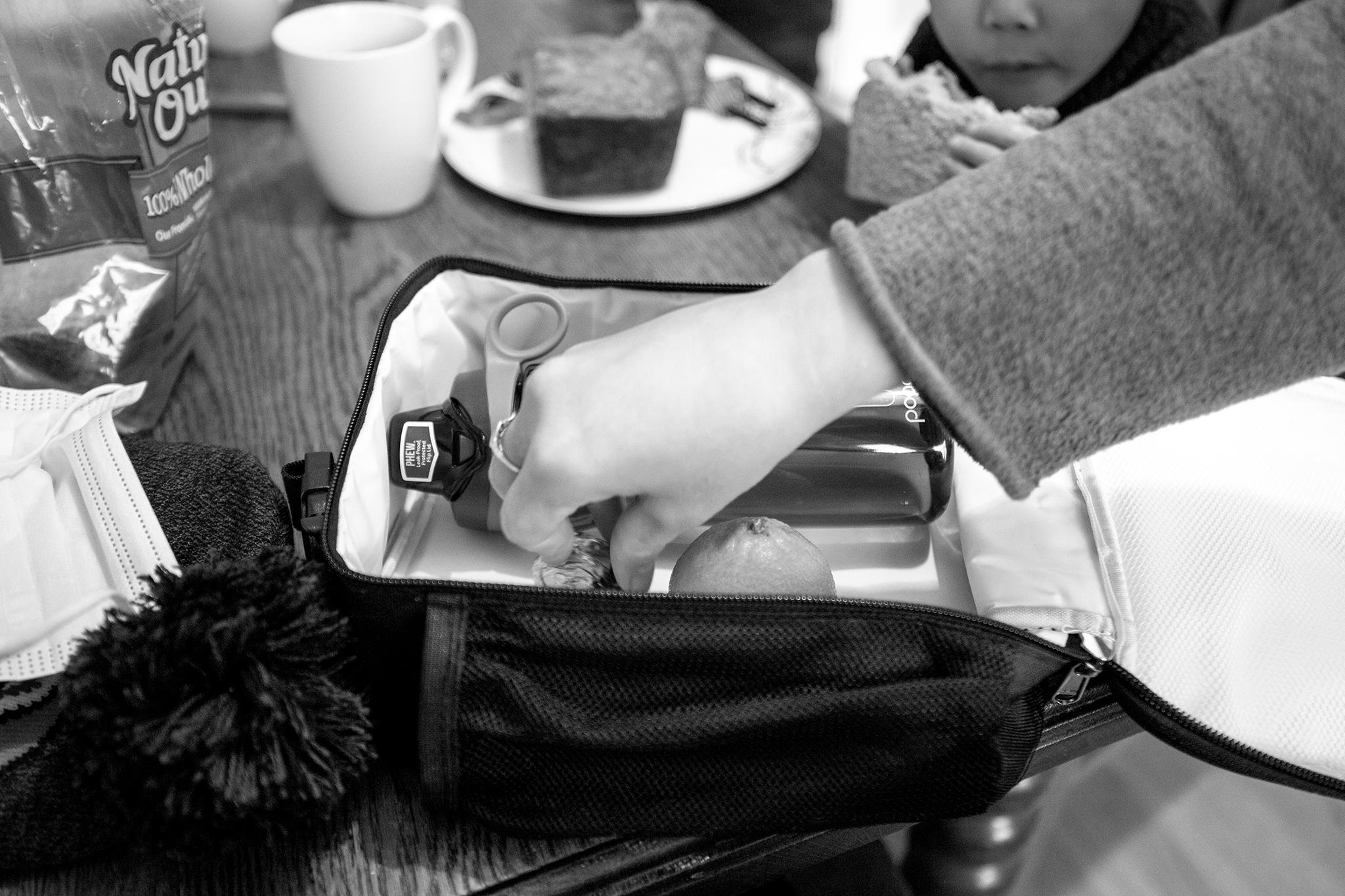
As Cheverton fretted about whether M.'s children would be happy in her small home, similar worries floated through M.'s mind.
"Will they accept us or not?," he thought to himself as his family neared the airport terminal to meet their hosts.
It was past midnight when they finally arrived at their new home. M. and Cheverton's husband, Steve, sat at the kitchen table and talked as M.'s son played with Cheverton's goddaughter beneath a lit Christmas tree. Cheverton watched from the couch with a serene look on her face. This was going to work out.
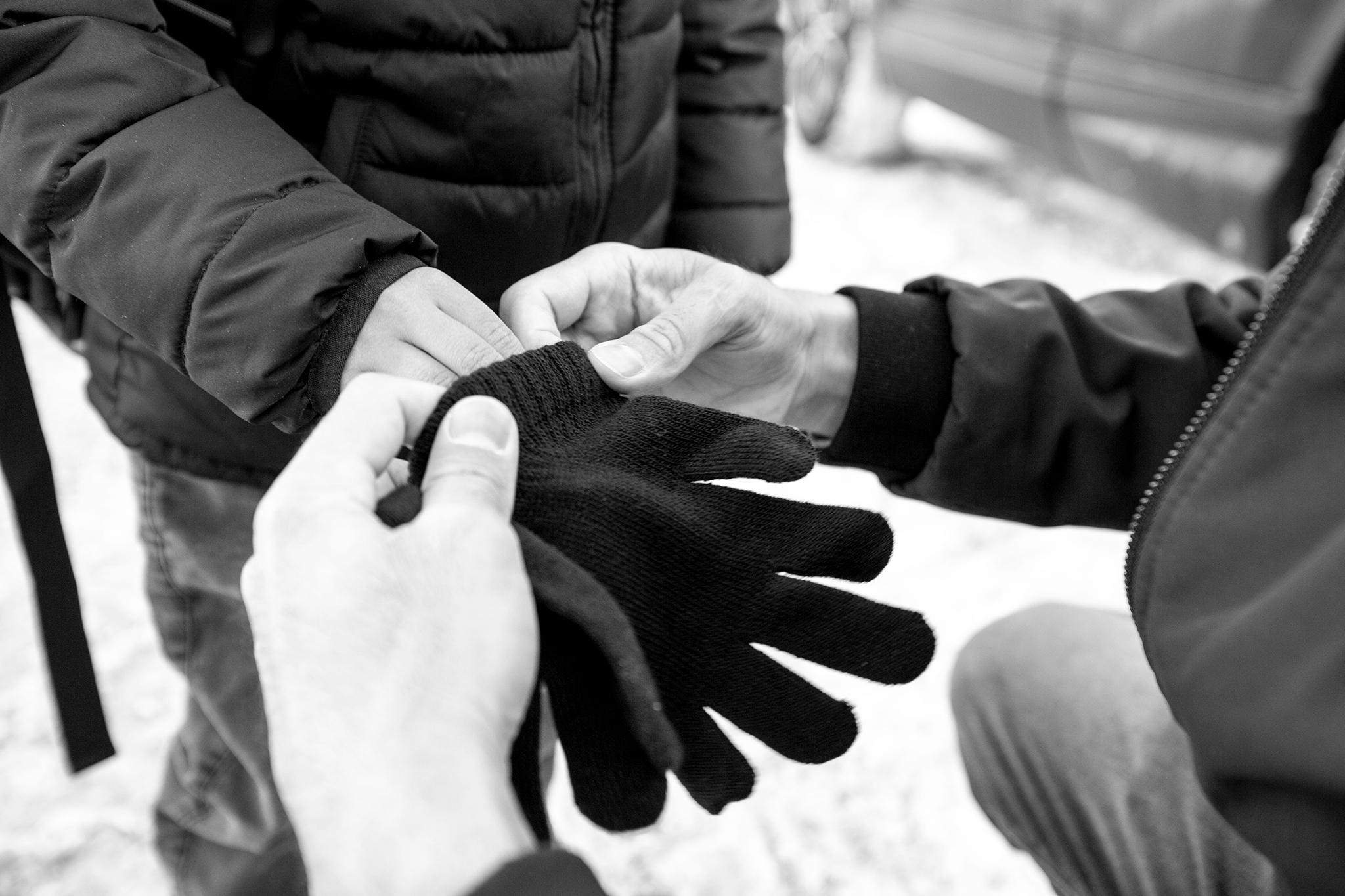
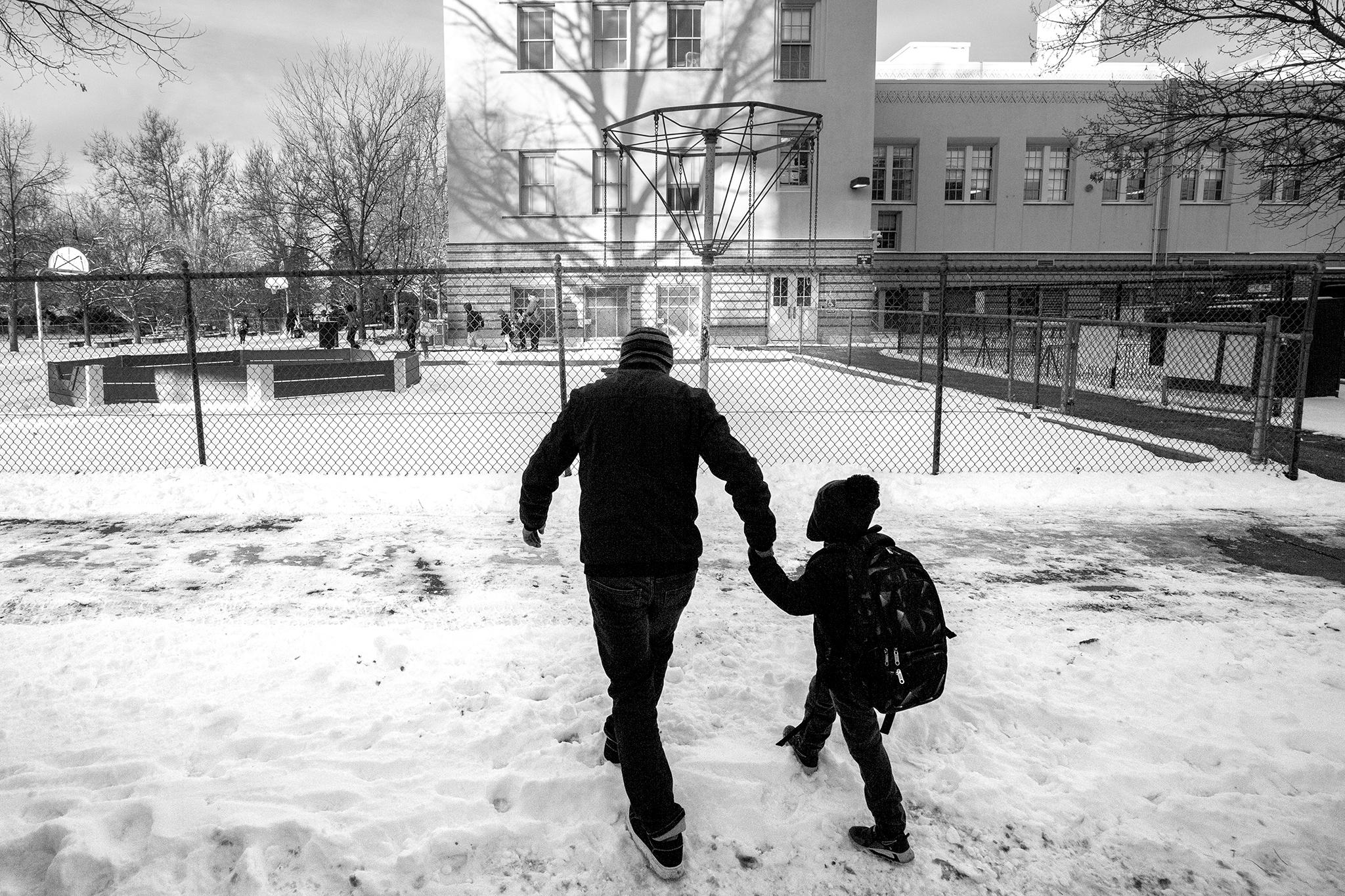
A few weeks later, M. dropped his son off for his first day of school in Denver, where he'll focus first on learning English. He sat at Cheverton's dining room table a few hours later, considering what happens next.
Yes, he'll probably stay in Denver when he moves out of the Chevertons' home, he said. But first, he needs to secure work authorization and find a job to begin their new life in earnest.
Steve came in with a letter addressed to M. as he spoke. M.'s eyes lit up as he opened the envelope and he pulled a paper card from inside.
"Oh my God. This is my Social Security. Thank you," he said. "Now I am happy."

As M. steps into a new future, messages from many more still stuck in Afghanistan continue to fill Cheverton's phone. And while America's attention largely moved on from the country last autumn, her personal lens into the crisis reminds her, constantly, that it's not over.

